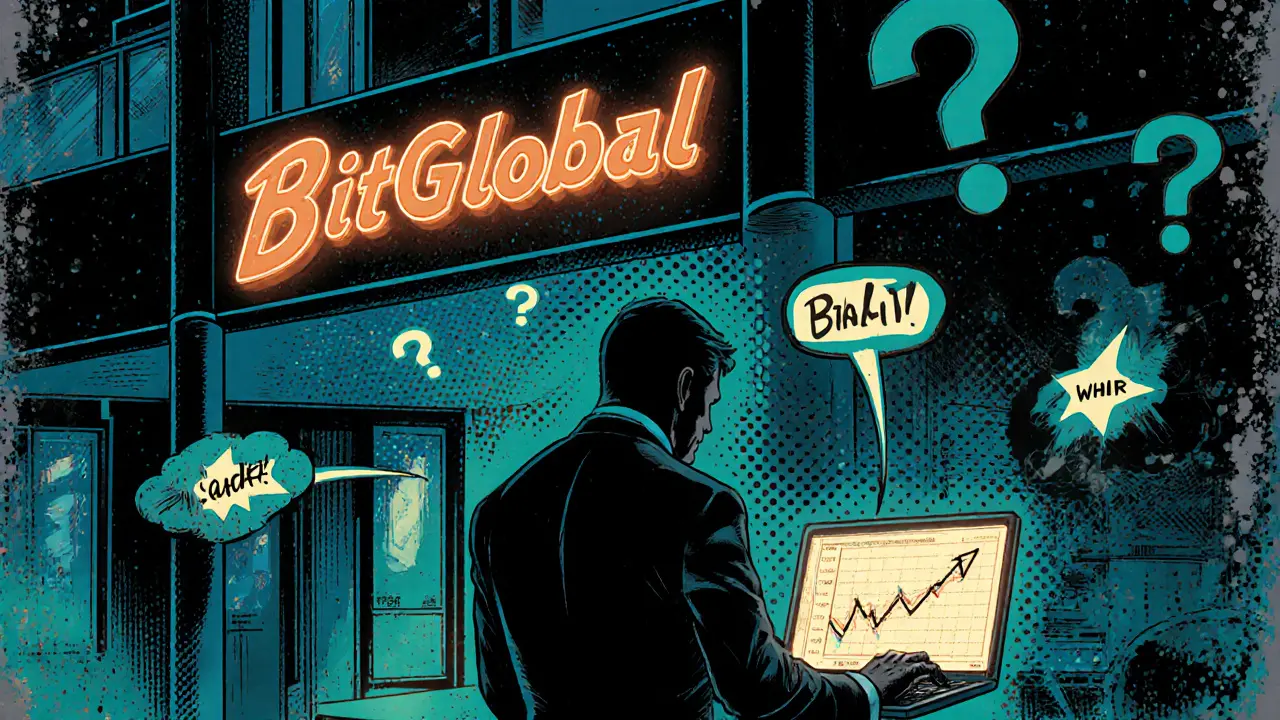BitGlobal Review: Is This Crypto Exchange Safe or a Scam?
A detailed BitGlobal review covering its history, fees, security gaps, user complaints, and why the exchange is now considered a likely exit‑scam.
Read MoreWhen talking about unregulated exchange, a platform that lets users trade crypto without official licensing or oversight. Also known as a non‑compliant exchange, it typically skips the checks that governments require, like AML (anti‑money‑laundering) and KYC (know‑your‑customer) processes. Because there’s no regulator watching the books, users often face higher chances of fraud, sudden shutdowns, and unclear dispute pathways.
In contrast, a crypto exchange, any online service where you can buy, sell, or swap digital assets usually operates under a license, follows AML/KYC rules, and must report suspicious activity. decentralized exchange (DEX), a peer‑to‑peer trading platform that runs on smart contracts takes a different route: it removes a central authority altogether, which some users see as a form of unregulated exchange, but it also offers on‑chain transparency that central platforms lack. AML/KYC compliance, the set of procedures that verify user identity and monitor transactions for illicit activity is the cornerstone of regulated markets; skipping it can attract criminals, leading to crypto fraud, scams that steal funds from unsuspecting traders. These entities intertwine: lack of AML/KYC fuels fraud, fraud pressures regulators to act, and regulation reshapes how exchanges operate.
Someone looking for a quick sign‑up might be drawn to an unregulated exchange because it promises low fees, no ID checks, and a wide range of obscure tokens. That convenience, however, comes with trade‑offs. Without a licensing body, there’s no guarantee that the exchange holds enough reserves, that smart‑contract code is audited, or that there’s a clear route to retrieve funds if the platform disappears. In regulated crypto exchange environments, users benefit from insurance funds, regular audits, and legal recourse, even if those safeguards add friction. Decentralized exchanges try to balance safety and freedom: they let you keep custody of your keys, but you also bear the technical risk of smart‑contract bugs and must navigate gas fees on the underlying blockchain.
From a risk‑management perspective, the core attribute of an unregulated exchange is the absence of oversight. That absence influences three key areas: security, liquidity, and legal exposure. Security suffers because there’s no external audit requirement, leaving users vulnerable to hacks or exit scams. Liquidity can be thin; without a regulated market‑maker network, price slippage spikes during large trades. Legal exposure spikes as well—if you’re caught moving illicit funds through a non‑compliant platform, you could face penalties in your jurisdiction without the exchange stepping in as a protector. Understanding these dynamics helps traders decide whether the speed and anonymity of an unregulated exchange outweigh the safety nets of regulated platforms.
Below you’ll find a curated selection of articles that break down each of these points in depth. From the mechanics of decentralized trading to real‑world cases of fraud on uncontrolled platforms, the posts give practical tips, technical walkthroughs, and a clear view of how regulation—or the lack of it—shapes the crypto market today. Dive in to see how the concepts we just covered play out across different exchanges, token projects, and emerging compliance frameworks.

A detailed BitGlobal review covering its history, fees, security gaps, user complaints, and why the exchange is now considered a likely exit‑scam.
Read More